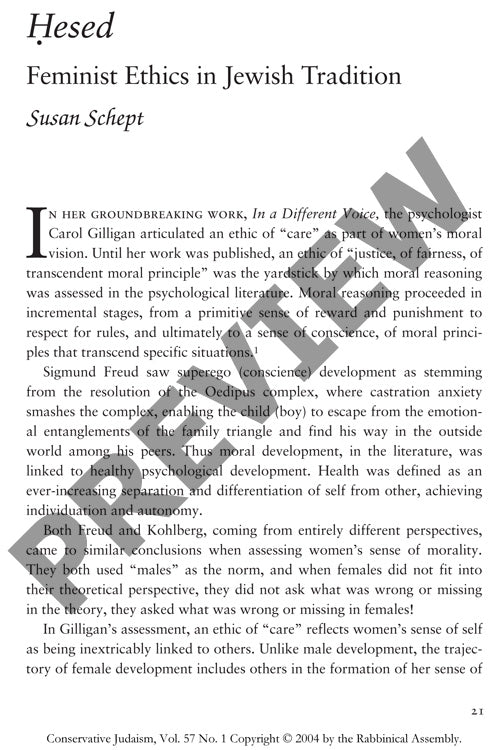Hesed Feminist Ethics in Jewish Traditio
Couldn't load pickup availability
Care ethics, often framed as a modern feminist innovation, has deep roots in the Jewish concept of *hesed* (lovingkindness) that stretch back through millennia of religious thought and practice. Through close readings of biblical narratives from Genesis and the Book of Ruth, alongside rabbinic commentary and midrashic literature, a striking parallel emerges between traditional Jewish moral frameworks and Carol Gilligan's contemporary ethic of care. The actions of three pivotal female figures—Sarah, Rebecca, and Ruth—reveal how *hesed* manifests as beneficent action performed within deep relational commitment, transcending mere legal obligations. Sarah's response to the Akedah exemplifies a care-based moral critique that prioritizes relational responsibility over abstract principle, while Rebecca's and Ruth's acts of *hesed* demonstrate care ethics functioning as divine attributes worthy of emulation. Modern midrashic interpretation and textual analysis reveal that Jewish tradition historically integrated both justice (*tzedakah*) and care (*hesed*) as complementary rather than opposing moral principles. These findings illuminate how ancient religious traditions prefigured contemporary feminist ethical frameworks, suggesting that care ethics is not solely a modern philosophical development but one with profound historical and theological foundations within Jewish thought.

More Information
-
Physical Description
-
Publication Information
Published 2004
ISBN
-
Publication Credits
Susan Schept

